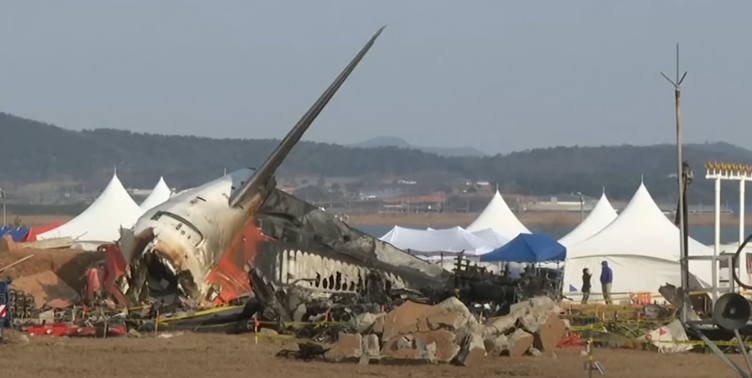A preliminary crash report has revealed that feathers and blood stains were discovered in both engines of Jeju Air flight 2216, which crashed at Muan International Airport in South Korea on December 29, 2024.
“Both engines were examined, and feathers and bird blood stains were found on each," said the report published by South Korea's Aviation and Railway Accident Investigation Board. “The samples were sent to specialised organisations for DNA analysis, and a domestic organisation identified them as belonging to Baikal teals.”
The species mentioned in the report is a migratory duck that spends the winter months in east Asia.
Early indications from investigators and transport officials in the country shortly after the crash suggested that the plane suffered a bird strike when approaching Muan. The transport officials reported that the 737-800 encountered difficulties during its approach, noting that the control tower at Muan received an “emergency declaration” from the pilot of flight 2216 at 8:59am local time. The pilot requested a go-around due to the bird strike.
The Jeju Air flight, which was travelling from Bangkok to Muan in the southwest of South Korea, crashed after skidding off the airport's runway and colliding with a concrete wall following a belly landing. The accident resulted in the deaths of all passengers on-board and all but two crew members, who were seated at the rear of the aircraft.
The final four minutes of the black box recordings are missing, the preliminary report said. The investigation board will tear down the engines to examine the components in depth, as well as analyse both the flight data recorder, cockpit voice record, and air traffic control data. The board is also continuing to investigate the embankment and bird strike.

